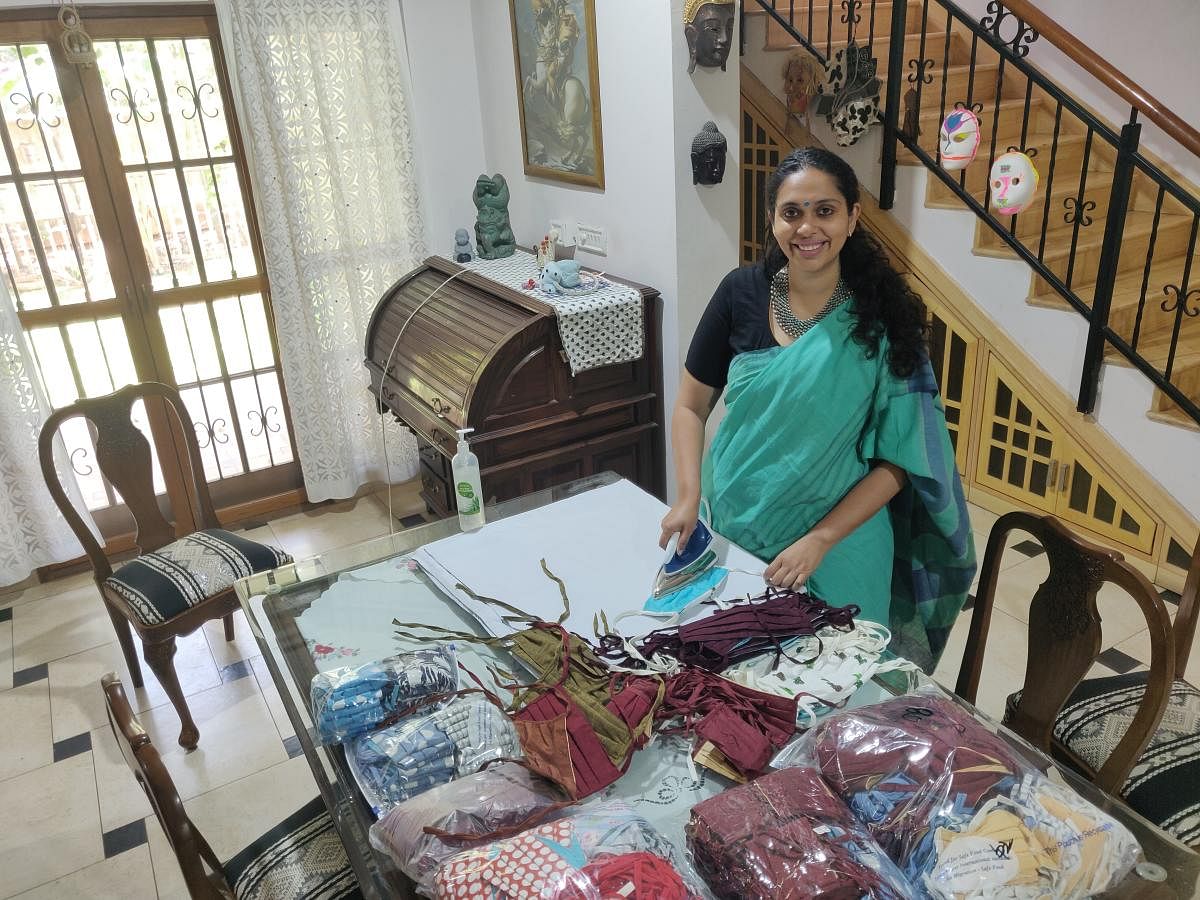
A social media group and some concerned citizens are encouraging production of masks, and sharing information on how to go about it.
In the Facebook group ‘The Bangalore Mask Project’, Jana Hennig, a German living in Bengaluru, is working with Lisa Renstroem, Erin Masias, Gurudeep Ramakrishna, Tejaswini Gopalaswamy and Tena Pick, to produce YouTube videos and infographics about mask making.
The idea and design came from the pandemic plan for the German city of Essen. The social media page provides links to pages developed by the lifestyle website ‘The Vine Bangalore’. “I started off by making some masks and handing them out, but soon enough we were short of supply. Now, I have a core team working on open-sourcing information for everyone,” Jana says. The infographics provide instructions in 10 languages on how to sew masks, and clean and store them.
The Facebook page, launched three weeks ago, is meant not for business but to spread quality information, she says.
These masks are meant for those in non-medical essential services and people who need to step out. They are not substitutes for N95 masks and should not be used by medical professionals dealing with Covid-19 patients, Jana cautions.
Tailoring unit
Subashree Ramdas, who runs handloom store Silk Threads, has made more than 3,000 masks and distributed them. Before the lockdown, she stumbled upon The Vine Bangalore. “I started off with the raw material I already had, about 1,000 metres of fabric, after which we sourced more fabric from the market. We have also used funds provided by the public. We can make four three-layer masks out of one metre of cloth,” she says.
Subashree is giving away these masks for free to people in essential services and residents of her apartment complex. Her tailoring unit, in Seegehalli, produces 300 masks a day. “A person can easily make 10 to 15 masks a day, even after completing other chores,” she says. Initially, people raised concerns about her masks not being like the N-95s, recommended for use against Covid-19. “Thankfully, newspaper articles and awareness videos helped. We want to encourage people to make their own masks,” she says.
Scaling up difficult
Vidya Ramamurthy has made more than 2,500 masks through her unit Manikarnika Fabrics in Koramangala, 4th Block. She was inspired by cloth mask models seen on the internet. “Shops around our store started asking me about masks and a man at a milk booth nearby inspired us to make them. We used several handloom prints for the mask, instead of the off-white cloth. We have got orders for 50 to 500 masks from small industries and apartment complexes,” she says. Scaling up and producing more is not possible as the staff are home-bound. Vidya charges Rs 40 a mask. “We are not accepting any raw material contributions as masks need to be made out of fresh fabric for hygiene reasons,” she adds.
Looking for cloth masks?
- Subashree Ramdas gives free masks to those in essential services. Contact: ssilkthreadsindia@gmail.com or 73958 75256 (WhatsApp only).
- Vidya Ramamurthy charges Rs 40 per mask, call 98861 01278.
- Log on to thevinebangalore.com or search for The Bangalore Mask Project on Facebook for tips on how to set up your own unit and make masks.
- If you have questions or suggestions, contact Lisa on 73383 80671 (WhatsApp only).
3-step guide to clean and store masks
Wash and dry
If using a washing machine, wash masks at 60 degrees with detergent. Use dryer at low speed.
If using pot and water, use a clean pot, bring water to boil and drop in the masks carefully. Boil for 3 to 5 minutes and remove masks from pot. Air dry for at least five hours.
Iron your mask
Wash hands before ironing. Iron the board first, then iron the front of the mask in the highest setting (not in steam setting), press the iron down while ironing, turn the mask and hold it only by its straps. Don’t touch the ironed side. Use directly after ironing, or store.
Store carefully
Use an airtight container, like a zip-lock bag or pouch that can be closed, to store masks.
Make sure your storage space has been cleaned with soap and water, or vinegar and water, and is dry. Never put a mask inside your purse or bag without protection.
(As advised by The Bangalore Mask Project, based on the public service announcement by the Indian government, and guidance by health experts)